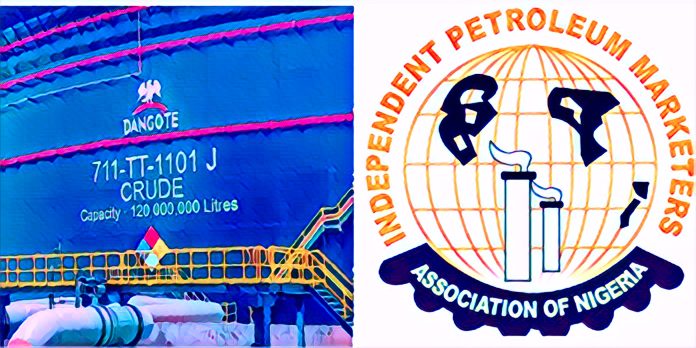KEY POINTS
- Dangote Refinery to supply IPMAN 60 million liters of petrol weekly.
- Deal eliminates middlemen, reducing pump prices nationwide.
- Imports remain critical despite Dangote’s increased local production.
In a groundbreaking move to streamline fuel distribution in Nigeria, the Dangote Petroleum Refinery and the Independent Petroleum Marketers Association of Nigeria (IPMAN) have signed an agreement for the weekly supply of 60 million liters of Premium Motor Spirit, also known as petrol.
The deal translates to a monthly supply of 240 million liters, enabling IPMAN members to purchase fuel directly from the refinery.
Fuel prices drop amid competition
IPMAN National Publicity Secretary Chinedu Ukadike said the initiative eliminates middlemen, making petrol more accessible and affordable nationwide.
“This partnership ensures efficient distribution and addresses supply-chain bottlenecks,” Ukadike said, adding that supplies are expected to commence by late November.
The deregulated market is already showing results, with pump prices of petrol dipping by as much as ₦10 to ₦15 per liter in parts of the country.
Ukadike attributed the reduction to competition introduced by deals such as IPMAN’s arrangement with Dangote, which eliminates intermediary markups.
“Prices will continue to decline as independent marketers begin sourcing directly from producers like Dangote Refinery,” he said.
A major oil marketer, speaking on condition of anonymity, confirmed the trend, emphasizing that deregulation has ushered in pricing flexibility.
Deregulation fuels imports
Despite the promise of Dangote’s local production, imports remain significant. Within 42 days, over two billion liters of PMS and hundreds of thousands of metric tons of diesel and jet fuel were brought into Nigeria by NNPC and private marketers.
Industry insiders revealed that Dangote’s output, while critical, must be supplemented by imports to meet domestic demand.
Dangote seeks funds for expansion
The Dangote Refinery, valued at $20 billion, is seeking $2 billion quarterly to secure crude oil imports and ramp up production.
The refinery, with a capacity of 650,000 barrels per day, aims to reduce Nigeria’s reliance on fuel imports.
Efforts to raise funds involve partnerships with lenders and traders. However, concerns remain about naira devaluation affecting the profitability of operations, officials said.



